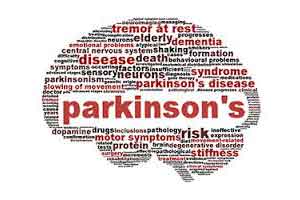- Home
- Editorial
- News
- Practice Guidelines
- Anesthesiology Guidelines
- Cancer Guidelines
- Cardiac Sciences Guidelines
- Critical Care Guidelines
- Dentistry Guidelines
- Dermatology Guidelines
- Diabetes and Endo Guidelines
- Diagnostics Guidelines
- ENT Guidelines
- Featured Practice Guidelines
- Gastroenterology Guidelines
- Geriatrics Guidelines
- Medicine Guidelines
- Nephrology Guidelines
- Neurosciences Guidelines
- Obs and Gynae Guidelines
- Ophthalmology Guidelines
- Orthopaedics Guidelines
- Paediatrics Guidelines
- Psychiatry Guidelines
- Pulmonology Guidelines
- Radiology Guidelines
- Surgery Guidelines
- Urology Guidelines
Irregular Biological Cycle May Worsen Parkinsons Disease: Study

New York : Chronic lack of sleep and irregular sleep-wake cycles that disturb the biological cycle are likely to risk the onset of Parkinson's disease as well as worsen the disease, warns a new study.
The animals-based study showed that the disturbances in the circadian rhythm the roughly 24-hour biological cycle of humans daily exposure to long periods of light with brief exposure to dark may also dramatically worsen the motor and learning deficits brought on by the disease.
"Many think that sleep disturbances are secondary to Parkinson's disease. But circadian rhythm disturbances are increasingly reported before the onset of Parkinson's, suggesting that they could be risk factors," said Domenico Pratico, professor at LKSOM in the US.
Further, the researchers observed significant reductions in neurons in substantia nigra a brain region that produce dopamine, the loss of which is a major molecular feature of Parkinson's disease.
"Cells normally die in that region of the brain, but our study shows that circadian rhythm disturbance accelerates cell death there," Pratico added.
In addition, cells known as microglia, which normally protect neurons, were superactive in circadian-disrupted MPTP-treated mice.
The overactivation of microglia can actually worsen neuroinflammation and potentially speed the progression of Parkinson's disease.
The findings are detailed online in the journal Molecular Psychiatry.
The team investigated the role of altered circadian rhythm using a well-established mouse model of Parkinson's disease, in which treatment with MPTP, a neurotoxin that reproduces aspects of the disease in mice.
Assessments of movement and behaviour showed that all mice treated with MPTP developed Parkinson's disease, but animals with altered circadian rhythm experienced significant learning impairments.
They also exhibited severe motor deficits, with drastic reductions in motor coordination and motor learning skills far worse than the deficits observed in MPTP-treated mice with normal circadian rhythm.
Next Story
NO DATA FOUND

Disclaimer: This site is primarily intended for healthcare professionals. Any content/information on this website does not replace the advice of medical and/or health professionals and should not be construed as medical/diagnostic advice/endorsement or prescription. Use of this site is subject to our terms of use, privacy policy, advertisement policy. © 2020 Minerva Medical Treatment Pvt Ltd